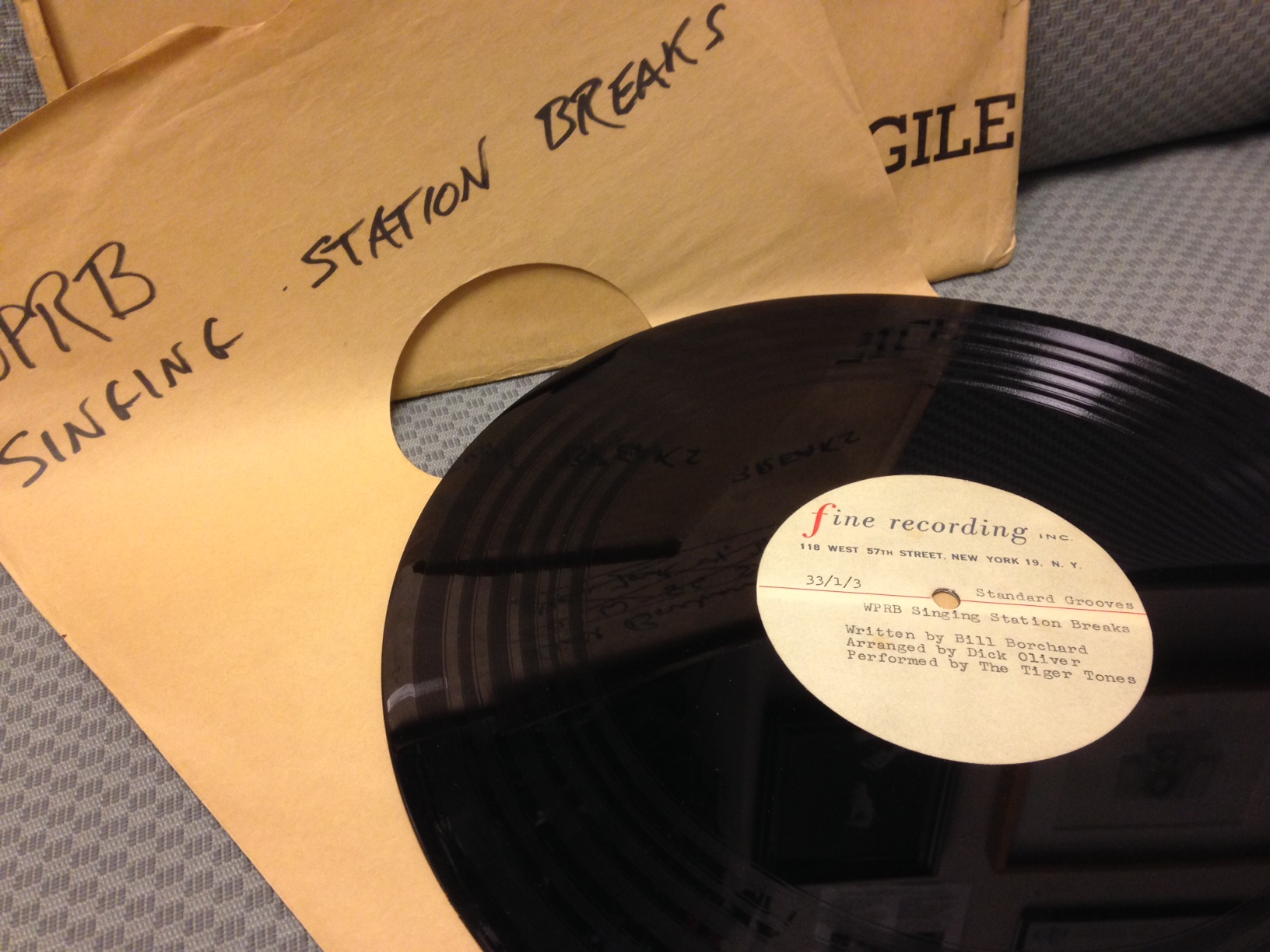LISTEN: Singing Station IDs by the Tigertones

William Borchard (class of 1960) recently submitted an acetate disc of WPRB station breaks, as performed by University a cappella group, the Tigertones. Below are his written recollections of the recordings’ origins, as well as interleaved ‘Listen’ links to hear them.
In 1957, I wandered over to Holder Hall and became an on-air engineer at WPRB. In those days, we had vinyl LPs and 45s (in quite an extensive record library), and large reel to reel Ampex tape recorders. The engineer played the records and the announcer was on the other side of the glass. We had a teletype machine that sent us the United Press International feed, and that is what we read for the newscasts on each hour.
There were no women undergrads or cars in those days. All we did was drink. But Dave Fullhart, a WPRB executive, was permitted to have his white station wagon, with antennas all over it and WPRB on the door, in order to carry equipment to remote locations. It was all very serious, exciting and fun.
One evening we got everyone on campus to tune in and played “Rock Around the Clock” by Bill Haley and the Comets over and over again. The students opened their windows and played it loud all over campus. Then they started a riot which got out of hand. As a result, the University banned us from playing that song ever again.
I started doing the remote broadcast of the Sunday Chapel service each week and finally I got my own one-hour show on Saturday mornings. It was called “Saturday Morning Showcase” playing mostly standard pop music. I got Jimmy Stewart to record a spot announcement about my show when he came to Princeton. I also got some townie girls to swoon over my show in a spot. I think by then I was doing the engineering and announcing myself.
And . . . . I wrote the singing station breaks. I had my high school music teacher arrange them, and I convinced the Tigertones to record them. I played them on my program but I doubt anyone else played them. Standards were lax, the AM signal was carried through the electric lines, and the FM signal could only be heard on or close to campus, so the audience generally was small, if any. It did not matter because we just assumed someone was listening—I think my roommate listened sometimes.
I still love radio, and am a strong supporter of New York Public Radio WNYC.
